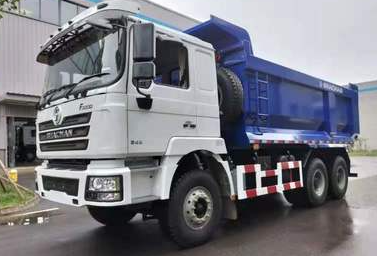At the heart of Shacman’s dominance in Africa’s commercial vehicle market lies its advanced engine technology—a fusion of innovation, durability, and adaptability tailored to the continent’s challenging conditions. By prioritizing performance, fuel efficiency, and sustainability, Shacman engines are redefining heavy-duty transportation across Africa, enabling seamless operations in industries ranging from mining to logistics.
1. Core Engine Features: Balancing Power and Efficiency
Shacman’s heavy-duty trucks are primarily equipped with engines from Weichai Power, a leading Chinese engine manufacturer renowned for its reliability and cutting-edge technology. These engines are designed to deliver robust performance while minimizing fuel consumption, a critical factor for African operators managing tight profit margins.
- High Torque Output: Shacman engines, such as the WP13 series, offer torque ranging from 2,300 to 2,500 N·m, ensuring superior pulling power on steep gradients and rough terrain. This is particularly vital in countries like Kenya, where trucks navigate mountainous regions daily.
- Fuel-Efficient Combustion Systems: Advanced common-rail fuel injection technology optimizes fuel atomization, reducing consumption by up to 10% compared to older models. In Nigeria’s competitive logistics sector, this translates to significant cost savings for fleet operators.
- Turbocharging and Air Handling: Variable geometry turbochargers (VGTs) enhance power delivery at high altitudes, a boon for trucks operating in Ethiopia’s highlands or South Africa’s mining areas.
2. Adaptation to African Environments
Shacman’s engine technology stands out for its ability to thrive in Africa’s diverse climates and infrastructure challenges.
- Extreme Temperature Resilience: Engines are engineered to withstand temperatures ranging from scorching Sahara heat to coastal humidity. In Algeria’s desert regions, Shacman trucks with thermal management systems maintain stable performance even at 50°C.
- Low-Quality Fuel Tolerance: African markets often face inconsistent fuel quality. Shacman’s engines incorporate fuel filtration systems and optimized injectors to prevent damage from impurities, a key advantage in countries like Angola where fuel standards vary.
- Dust and Corrosion Protection: Heavy-duty air filters and corrosion-resistant materials ensure engines perform reliably in dusty environments, such as Ghana’s mining sites or Botswana’s construction zones.
3. Sustainability and Compliance
As Africa increasingly prioritizes environmental regulations, Shacman is at the forefront of offering eco-friendly solutions.
- Euro V/VI Compliance: In markets like South Africa and Morocco, Shacman trucks feature engines compliant with strict emission standards, reducing nitrogen oxide (NOx) and particulate matter (PM) emissions by 90% compared to older models.
- Alternative Fuel Options: Shacman has introduced natural gas (NG) engines in Ethiopia and Senegal, aligning with global decarbonization goals while leveraging Africa’s abundant gas reserves. These engines cut CO₂ emissions by 20% and eliminate sulfur dioxide (SO₂) entirely.
- Hybrid and Electric Innovations: Pilot projects in Kenya and Tanzania are testing hybrid powertrains, combining diesel engines with electric motors to reduce fuel use and noise pollution in urban logistics.
4. Localized Service and Maintenance
To ensure long-term reliability, Shacman partners with African distributors to provide comprehensive after-sales support.
- Modular Engine Design: Components like cylinder heads and injectors are interchangeable, reducing downtime during repairs. In Nigeria, this has cut maintenance costs by 30% for Shacman fleet owners.
- Remote Diagnostics: Telematics systems monitor engine health in real time, enabling predictive maintenance. For example, in South Africa’s mining fleets, this technology has prevented costly breakdowns by detecting issues before they escalate.
- Training Programs: Shacman trains local technicians in engine repair, empowering African talent and fostering self-sufficiency.
5. Case Study: Shacman Engines in Action
In Nigeria’s agricultural sector, Shacman trucks equipped with WP10 engines are transporting crops from farms to ports efficiently. Their high torque allows them to navigate muddy rural roads during the rainy season, while fuel efficiency ensures profitability for small-scale logistics firms. Similarly, in South Africa’s Gauteng province, Shacman’s mining trucks with Tier 4 engines are operating 24/7 in gold mines, demonstrating durability under extreme stress.
6. Future Directions
Shacman is investing in research and development to stay ahead of African market needs. Plans include:
- Hydrogen Fuel Cells: Collaborations with African energy companies to test hydrogen-powered engines in South Africa and Morocco.
- AI-Driven Optimization: Machine learning algorithms to predict engine performance and optimize fuel usage based on route data.
- Local Assembly: Partnering with African manufacturers to assemble engines locally, reducing costs and supporting regional industrialization.
Shacman’s engine technology represents a blend of Chinese engineering excellence and African market understanding. By delivering power, efficiency, and sustainability, these engines are not just driving trucks—they are powering Africa’s economic transformation. As the continent’s infrastructure and environmental goals evolve, Shacman remains committed to innovation, ensuring its engines stay at the forefront of progress.
If you are interested, you can directly contact us. WhatsApp:+8617829390655 WeChat:+8617782538960 Telephone number:+8617782538960Post time: Mar-28-2025









